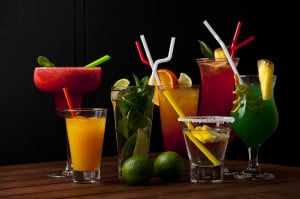 In a recent class-action lawsuit, the company that makes Red Bull energy drinks was ordered to reimburse anyone $10 who bought the drink because of false advertising. Oddly enough, the energy drink does not give anyone wings as promised, and the company is paying the price for its claim of flight potential through caffeine consumption. Aside from a misunderstood advertising campaign, energy drinks can be devastating in another way: they can lead us down a direct path to drunk driving.
In a recent class-action lawsuit, the company that makes Red Bull energy drinks was ordered to reimburse anyone $10 who bought the drink because of false advertising. Oddly enough, the energy drink does not give anyone wings as promised, and the company is paying the price for its claim of flight potential through caffeine consumption. Aside from a misunderstood advertising campaign, energy drinks can be devastating in another way: they can lead us down a direct path to drunk driving.
Before energy drinks became a staple of the tired masses and bar flies, liqueur was mixed with coffee or tea and generally consumed after a meal. It was rare to see a person at a bar drinking several Irish Coffee drinks with friends while out on the town, unlike today when there are plenty of cocktails that combine energy drinks and liquor. The problem with any type of caffeine-alcohol combination is twofold: a false sense of sobriety, and not feeling tired enough to stop drinking, both of which can lead to dangerous decisions to drink and drive.
These ramped-up mixed drinks mask how intoxicated we feel, because we’re more alert from the caffeine. So, we might drink more, or think we are much more sober than we actually are. This may even be especially troubling for underage drinkers and those prone to binge drinking, giving them the “wings” to keep drinking more, and for a longer time. Regardless, any false sense of sobriety can quickly lead down the path to drunk driving, an ignition interlock requirement or worse.
Although the research surrounding energy drinks and alcohol isn’t entirely conclusive, there are definite concerns about the effects of the combination of the two. It takes an alert mind to drive safely, but, even the most “alert” mind can be in a drunk driving incident when caffeine is involved. Keep your wings and your wits about you when you’re revving up your drink for the night, and be sure that you have a safe ride home.

Leave a Reply
You must be logged in to post a comment.